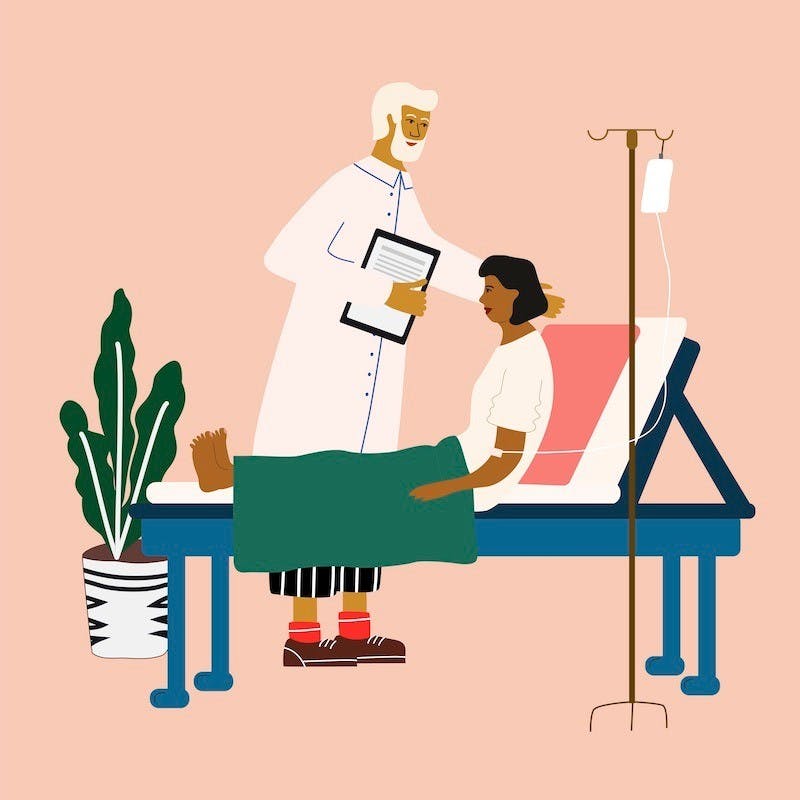
Hospice Care: Separating the Myths from the Facts
The info you need to make the right decision

Hospice care is an alternative form of care for people with terminal illnesses, most often reserved for those with a life expectancy of six months or less. Hospice gives people the opportunity to spend their remaining time in the comfort of their own homes, surrounded by family members, friends, and pets, instead of in a hospital.
Each person will have a different experience and approach when it comes closer to the end of their life; some may not need the extra level of care that hospice can provide. While the concept seems rather simple, there are many stigmas and misconceptions surrounding the word “hospice”. We feel it’s important to shed some light on these misconceptions in order to provide you with all of the information you need when deciding whether or not to move forward with hospice.
Myth: Hospice will cause me to die faster.
Fact: Hospice neither hastens nor postpones one from dying. The goal is to improve the quality of remaining time that you have, eliminating as much pain and stress as possible.
Myth: If I enter hospice care, then I will die in six months.
Fact: It is true that individuals that qualify for hospice must have a terminal illness with a prognosis of six months or less. However, some patients may have an initial prognosis of six months, but end up living longer. In fact, it has been found that on average, those with terminal disease prognoses who have received hospice services live an average of twenty-nine days longer than those who had not. In these cases, patients “graduate” from hospice care. They can then reapply if a physician reassesses the terminal illness and determines that the prognosis is still an additional six months or less.
Myth: If I enter hospice care, they won’t give me my medication to help treat other conditions that I may have.
Fact: The aim of hospice care is to treat physical symptoms like pain, shortness of breath, anxiety, nausea, vomiting, constipation, diarrhea, etc. The hospice care team will provide medications to treat these symptoms as well as any other condition a patient may already have (diabetes, high blood pressure, anxiety, etc.). The hospice care team will provide the medication that a patient might need to live pain and symptom-free.
Myth: My family members should isolate themselves if I enter hospice care.
Fact: Research shows that experiencing the dying process of a loved one in a caring and nurturing environment allows family members (including children) to overcome the fear of their own mortality as well as that of their loved ones. It allows the patient and family members to grow and experience their sickness together.
Myth: Hospice care is too expensive. I won’t be able to afford it.
Fact: In the last six months of a terminal illness, hospice care is often less expensive than conventional care in a hospital. Patients that are eligible for Medicare or Medicaid will pay little in regard to expenses for hospice care. The majority of private insurers also cover some hospice-related expenses, but these are questions you should ask your insurance plan providers when considering hospice care.
Myth: I cannot keep the same family practice physician when I enter hospice care.
Fact: Hospice physicians work closely with your doctor of choice. Patients can still see their physicians or include them in their care as they see fit. The patient and their family are in charge of what their own experience will look like. The hospice physician can directly work with another physician of the patient’s choosing to ensure that care is handled in the way you think is best.
Myth: If I enter hospice care, I still need to navigate will-writing and funeral arrangements alone.
Fact: Every hospice care program is different and it is important to ask these questions first, but most hospice programs have extra resources to help patients and their families. This can include but is not limited to: making one’s wishes known, assisting in creating wills and trusts, and planning funerals.
Myth: Hospice care will not provide support to my family members after I or my loved one passes.
Fact: Bereavement and coping services will be provided to family members or caregivers for up to one year following one’s death. Services range from personal visits to grief counseling to group therapy support. Other services can be referred to as well.
Hospice care exists to offer you the opportunity to live the remainder of your life -- whether at home or in a hospital setting -- pain and symptom-free. There is no single “right” decision for every situation, but having the facts about hospice care and continuing to ask questions can help you feel more confident that you are making the best decisions for you and yours.
Benjamin Horn is a medical student that will be entering medical residency in 2021. He has had the opportunity to work in hospice and palliative care facilities in the US, as well as in Germany, furthering his passion in the medical field. Additionally, Benjamin has used his Masters in Bioethics to further this passion by examining conversations in end-of-life care as well as the emotions that arise during these difficult times.
